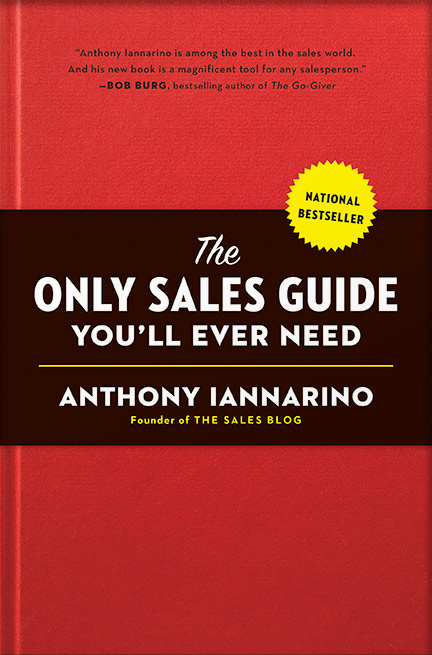The Gist
- There are different perspectives available to you as a salesperson, all of which provide some part of the “truth.”
- Most of the time, in discovery you acquire a large amount of subjective truth, without much objective truth.
- One of the ways you improve your ability to help your clients is by using six lenses, each of which provides you with a clearer view of reality.
Ken Wilber is the most cited American philosopher that you’ve never heard of—unless of course you’ve read my chapter on discovery in Eat Their Lunch. That chapter applies Ken’s model, often called AQAL: all quadrants, all levels, all lines, all states, and all types. If you want to explore Ken’s work further, you should start by listening to Kosmic Consciousness on Audible— it’s the only way to get his spirit and his sense of humor.
Here, we are only going to look at quadrants of truth, to help you add a lens that will let you see something others will miss. If you imagine four quadrants, the upper left quadrant will provide you with an individual’s subjective truth. The upper right would be the individual’s objective truth.
The bottom left quadrant is the collective subjective truth, like culture and values, as well as the worldviews of the person’s tribe or their business. The bottom right quadrant is the collective external truth.

The Individual Interior Subjective Truth
You and I both have a subjective truth. We have our own ideas about our purpose, our values, and what we believe it means to live a good life. We also have a spiritual experience and our own psychology. Much of what we believe to be true is our subjective truth, while others have a very different subjective truth.
When you are sitting across the table from a client (or anyone, really), a large part of what they say is their subjective truth. A large part of what you hear is likewise filtered through your subjective truth. When two people disagree, it is often because there are conflicts in their subjective truths. The different experiences and the way the individual interprets them result in different ideas about what is good, and right, and true.
It is always helpful to understand an individual’s subjective truth, even if it is one that you don’t recognize, and even if it conflicts with your own subjective truth.
The Individual Exterior Objective Truth
The external objective truth is the individual’s brain, their blood chemistry, and all the empirical data we could capture. This is physics, biology, and neurology. But it’s also statistics and goals and facts. You and I may disagree on what is good and right and true when it comes to interpreting some fact, but objective truth is true for everyone. The flat-earthers believe the sun travels around the earth. That is a denial of objective truth. It’s the same as walking outside in the rain and insisting that it is not raining.
One of the ways we improve our results is to use objective truth to understand our current reality. We may not like what it teaches us, but looking at objective truth allows us to change our reality in meaningful ways.

The Group Interior Subjective Truth
Just like you have an individual subjective truth, collections of human beings also have a collective subjective truth. You and your tribe share a culture and a worldview. You also share big ideas about meaning. You share a sense of community, and in business, you share a corporate culture. As a group, you share a lot of subjective beliefs.
Groups of individuals act in ways consistent with their groups. Those who don’t may be ostracized for their heretical beliefs, real or imagined. The price of entry into a group is often conformity to the shared collective interior subjective truth.
The Group Exterior Objective Truth
You and I both share social systems, an economy, and an environment. We are part of all of these different categories. We can measure these things to capture a picture of what is true, even though that doesn’t tell us if it is good, a subjective measure.
You and I might argue, for example, about whether the current political establishment is pursuing the right policies, but we can’t argue about what the GDP was last quarter. We can only argue that it might have been better or worse with different policies. We also can’t argue over the current price of one share of JP Morgan Chase. You are going pay the price that share commands, even if you believe it is overvalued.
And this is the rub. Many of the conflicts we have in business and in life can be seen through two additional lenses that take advantage of the information we acquire from these four types of truth.

Conflict #1: Individual Internal Subjective Truth vs. Individual Exterior Objective Truth
You often find conflict when an individual’s subjective truth collides head-on with objective facts. You can look at your sales results and believe they should have been better based on your approach and your effort. But that belief doesn’t change the actual numbers.
You can also believe that other people should recognize the value you believe is obvious, but when they don’t behave as if it is valuable to them, the poor adoption means your subjective belief is in conflict with reality.
Conflict #2: Group Interior Subjective Truth vs. Group Exterior Objective Truth
A group can also share beliefs that are at odds with objective reality. One of the biggest sets of shared ignorance about a new reality is the ramifications of the “app economy.” You don’t want to be the last person to have paid for a taxi medallion in the greatest city on earth, New York City. The taxi industry didn’t recognize that their long-successful business model was under a direct attack, one that dramatically improved the experience for the customer. The shared belief that people will always choose to take a taxi has been forever altered by a new reality.
What makes change difficult is that individuals’ subjective beliefs and preferences often prevent them from considering the objective reality that is careening into their results, causing them to be something less than they need. But the opposite is also true: arming yourself with the facts about the objective truth doesn’t always take into account the individual or group’s subjective views, beliefs, and preferences. In either case, you need all of the lenses to understand where the obstacles to change lie.
Do Good Work:
- Recognize when your client is giving you their subjective truth and when they are providing objective facts.
- Pay attention to the group’s view of subjective truth and the objective world’s impact on those beliefs.
- When you spot conflicts between these beliefs, recognize your responsibility to address them effectively if you want to make change.

Essential Reading!
Get my first book: The Only Sale Guide You'll Ever Need
"The USA Today bestseller by the star sales speaker and author of The Sales Blog that reveals how all salespeople can attain huge sales success through strategies backed by extensive research and experience."
Buy Now










.jpg?width=768&height=994&name=salescall-planner-ebook-v3-1-cover%20(1).jpg)


